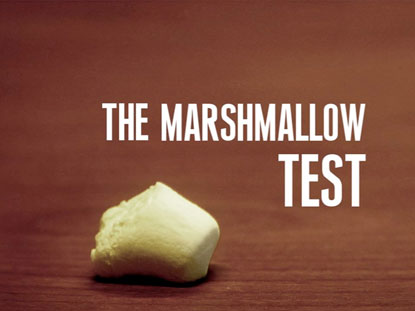Our time-orientation (future, present or past) is somewhat part of our personality. To be effective, teams might need to be constituted by people that share similar time-orientation. In fact it might be one of the most important recruitment criteria.
Philip Zimbardo and John Boyd in “The Time Paradox: The New Psychology of Time that Will Change Your Life“, argue that we have quite different perspectives on time and they are quite stable through time.

Present-oriented people tend to be hedonistic, and future oriented people tend to defer gratification (like in the famous marshmallow experiment: leave a child alone with a marshmallow for a few minutes explaining that if he/she does not eat the marshmallow he/she’ll get a second one – observe the reaction).
In “Strategy and the Fat Smoker: Doing What’s Obvious but not Easy“, David Maister argues that effective implementation of a strategy by a team can only happen if the team’s time-orientation is consistent. If the strategy is very much about making an effort or even a sacrifice to reach an improved condition, you’d better have around the table people that share the same preference for deferred gratification, i.e. that are strongly future-oriented.
I find increasingly that personal time-orientation is definitely a major criterion for hiring in particular for a startup – you want people that are ready to make the effort, forego gratification like time for themselves and with their families, to build something better in the future – you want future-oriented people.
In other occupations you might rather want present- or past-oriented people.
How do you know people’s time-orientation? Actually it is generally quite obvious from observing and listening to people. People that are present-oriented will need to spend a lot of time caring about themselves and will generally make sure they enjoy to the most their current situation. People that are future-oriented will live stoical lives and invest heavily for some distant future.
Look at your prospective hires’ time orientation to check it is fit with your preferences and what you want to achieve! I make it an ever increasing important criteria for recruiting fro my team!
Do you want to know your time orientation in a scientific way? Take Zimbardo’s Time Perspective Inventory and compare yourself to other people!
